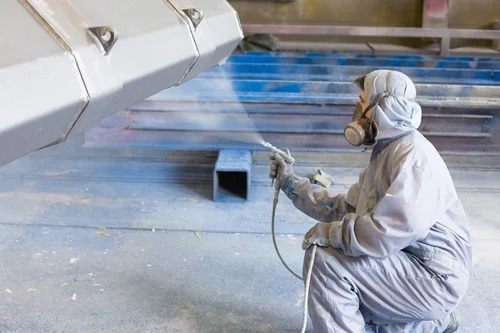The strength of materials is critical in the development, manufacturing, and engineering industries. Among the different possibilities, Zinc-coated steel corrosion resistance stands out for its excellent corrosion resistance, making it a crucial choice for many industries. Distek Group, a leader in innovative materials solutions, uses zinc-coated steel to produce products that are not only strong and durable but also cost-effective and environmentally friendly.
Understanding Zinc Coated Steel
Zinc-coated metal, also known as galvanized metal, involves covering the metal with a layer of zinc to protect it from corrosion. This method improves the steel's durability and performance in a variety of conditions. The zinc coating functions as a physiological barrier, keeping corrosive chemicals from reaching the steel substrate. Furthermore, zinc provides cathodic safety, which means it will degrade near the steel if the coating is broken, hence extending the metal's lifespan.
Uses of Zinc-Coated Steel
Zinc-coated metallic is versatile and suitable for a wide range of packages. Here are a few situations in which its corrosion-resistant homes are precious:
1. Construction:
Zinc-covered metal is widely utilized in construction systems, roofing, and cladding due to its ability to withstand extreme weather conditions. Its durability maintains the structural integrity of homes, minimizing maintenance costs and improving longevity.
2. Automotive Industry:
Zinc-coated metallic is used for automotive bodies and exterior components in automotive production. Zinc-coated metallic is versatile and suitable for a wide range of work. Zinc-coating corrosion resistance prevents rust, assuring the durability and safety of vehicles.
3. Agriculture: Moisture and chemical chemicals commonly enter agricultural systems and structures. Zinc-lined metallic provides critical corrosion resistance that can withstand harsh environments, ensuring consistent performance throughout the years.
4 Infrastructure: Zinc-coated metal is commonly used in bridges, guardrails, and other forms of infrastructure. Its ability to withstand corrosion under a variety of environmental conditions makes it a good choice for those critical applications.
Benefits of using zinc-coated steel
Enhanced Durability: The fundamental advantage of Zinc-coated steel corrosion resistance is its superior sturdiness. The zinc coating provides long-term protection against rust and corrosion, significantly increasing the lifespan. This endurance translates to lower restoration and replacement costs, making it an affordable alternative for a variety of sectors.
Cost Effectiveness: surpass the initial outlay. The longer lifespan and reduced preservation requirements result in lower universal expenses, delivering significant financial benefits.
Environmental benefits: Zinc-coted metal is an environmentally friendly choice. The longer lifespan of zinc-lined goods results in fewer replacements and reduced waste. Furthermore, both metallic and zinc are recyclable, which helps to promote sustainability and reduces their ecological impact.
Zinc-coating corrosion resistance is an invaluable material for a variety of sectors due to its exceptional corrosion resistance, durability, and low cost. Distek Group's commitment to providing high-quality stand-out in the industry, giving trustworthy and long-lasting solutions to their customers. Whether you work in manufacturing, automotive, agricultural, or infrastructure, Distek Group has the expertise and product selection to meet your demands.




.jpg)




.jpg)
